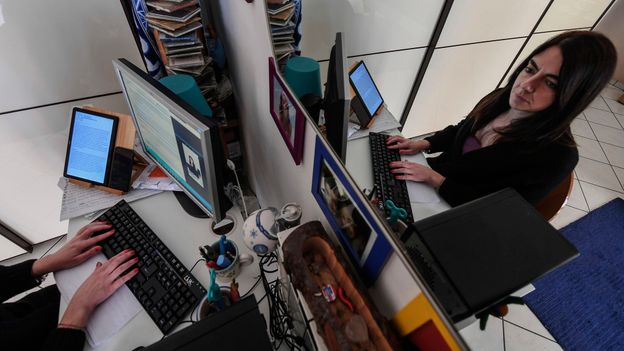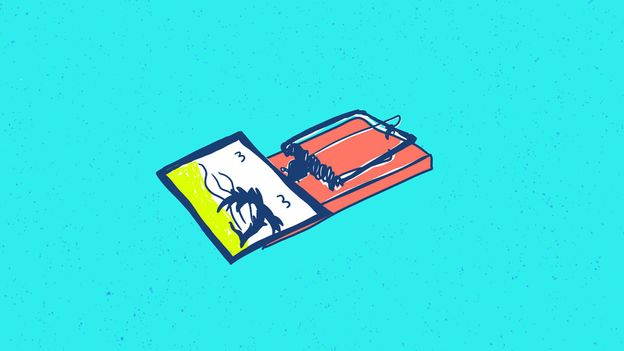Can tech help?
As the evidence for the benefits of deep breathing builds, we may be hearing a lot more about the power of controlled breathing – in books and magazines, on TV lifestyle programmes and at work, as more companies attempt to teach breathing techniques to improve employees’ management of stress.
Bostock is one of many coaches who now offer breathwork retreats and corporate workshops. He says that interest has “exploded” recently, with clients including large banks, management consultancy firms and tech companies. They are partly drawn by its simplicity, he says. “You don’t have to have had experience meditating or practicing mindfulness. Once you learn how the breath affects your mind and body, you now have a quick and easy way to change your state, whether it’s to decrease stress and nervousness, increase your energy and focus, and even aid in creative problem solving.”
In the future, our journey into deep relaxation may be guided by devices that record your physiological responses to the breathing exercises. For example, one recent trial immersed participants in a virtual reality beach at sunset. Their heart rate variability was illustrated by clouds on the horizon; the more relaxed they became, the clearer the sky. The immediate feedback appeared to ease their journey into that relaxation response – and once they had reached it, a campfire lit up on the beach, reinforcing the sense of having attained their goal. That, in turn, helped them to re-enter the relaxed state during a later cognitive test, boosting their concentration. There is already a plethora of smartphone apps that claim to work along similar lines, though they have not all been rigorously tested for their efficacy.
Yoga practitioners have, of course, been reaping these benefits for millennia – without such technological aids. The latest scientific research simply helps us understand the reasons why these practices are so beneficial, outside of their religious or spiritual context, and to find potential new ways to maximise them. If you regularly suffer from stress, it may just be time to breathe some long sighs of relief.
David Robson is the author of The Intelligence Trap, which examines evidence-based ways to improve our decision-making and learning. He is @d_a_robson on Twitter.













